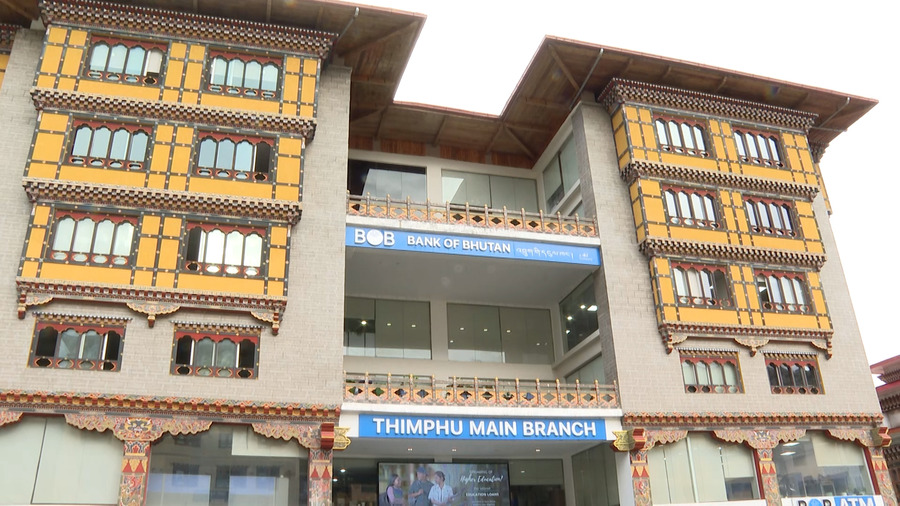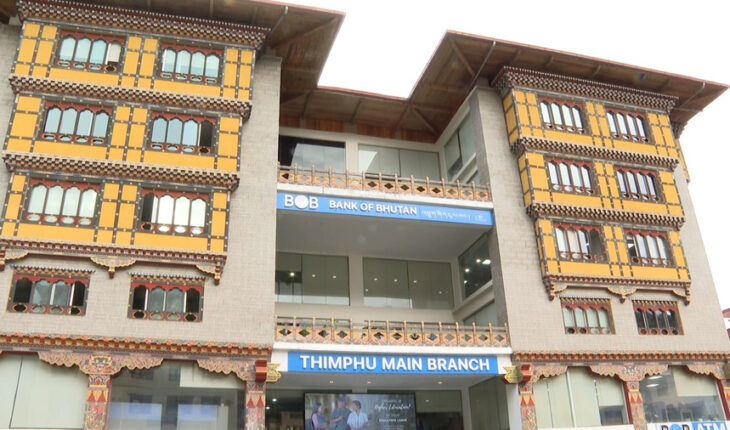
Govt. rolls out education loan under Economic Stimulus Plan
TIL BDR GHALLEY
THIMPHU
The Government has launched the Concessional Education Loan Scheme under the Economic Stimulus Programme (ESP) on July 23, 2025, to enable students to pursue tertiary education and skill development in Bhutan and India.
The initiative, funded by the Government of India, will be implemented by the Bank of Bhutan Limited (BoBL) over the period from July 2025 to June 2028.
The scheme offers a concessional annual interest rate of 4 percent without requiring collateral or linking eligibility to parents’ salaries, allowing students from diverse backgrounds to access financial support.
Under this scheme, students can avail up to Nu 1.5 million to cover tuition fees and living expenses. Tuition fees will be disbursed semester-wise directly to colleges or institutes by BoBL, ensuring payments are made on time for enrolled students.
“Higher education must not be a privilege reserved for the wealthy; it should be a right accessible to every Bhutanese student,” an official from the Joint Technical Working Group overseeing the ESP loan scheme said.
The scheme targets Class XII graduates below the age of 25 who wish to pursue undergraduate or diploma programmes in Bhutan, including self-funded seats in public colleges, as well as programmes in India.
It also covers Technical and Vocational Education and Training (TVET) graduates and eligible Class XII graduates seeking to undertake vocational courses in India.
“This loan is designed specifically to support those from families without business income and with an annual household income below Nu 500,000,” the official added.
Loan repayment under the scheme will begin after the completion of the course plus a one-year grace period, providing graduates with time to secure employment before repayment starts.
The repayment tenure is set at 10 years, excluding the grace period. A guarantor is required, who can be a parent, sibling, or guardian.
To ensure accountability, students are required to maintain satisfactory academic performance to continue receiving disbursements. Students who fail in any semester will not be eligible for further disbursements under the scheme.
For the fall 2025 intake, the application deadline has been extended to August 31, 2025, providing additional time for students to prepare their documentation.
Regular application windows will continue to be January-February for spring enrolment and June-July for fall enrolment.
BoBL will reimburse first-semester tuition fees already paid by students who are approved under the scheme, providing financial relief to families who managed initial payments before the scheme’s rollout.
Further, clear monitoring mechanisms will link disbursements to academic verification and institutional enrolment status.
An official from the Joint Technical Working Group noted, “The age limit of 25 years was set as youth unemployment is highest in that demographic, and the scheme aims to intervene at this critical stage to help young people upskill and access better employment opportunities.”
The Nu 600 million budget allocated under ESP will support the concessional education loan programme.
The scheme will be administered in collaboration with the Royal University of Bhutan, Khesar Gyalpo University of Medical Sciences of Bhutan, Ministry of Education and Skills Development, Department of Revenue and Customs, Department of Civil Registration and Census, private colleges and institutes, BoBL, and the ESP Secretariat.
Eligible candidates include those who graduated in 2025 and plan to enroll in undergraduate, diploma, or vocational programmes in Bhutan or India.
Students who began their courses in 2024 are not eligible under the current framework. The scheme also covers TVET vocational training in India, while vocational courses outside India are excluded.
Parents have expressed relief over the launch of the scheme, highlighting the financial pressures it will ease.
Sonam Choden, a parent in Thimphu whose daughter plans to study nursing in India, said, “The scheme will help middle-income families who struggle to manage fees while supporting other household needs.”
“We are grateful that the scheme does not require collateral, which is often a barrier for many families,” said Tshering Dorji, a father from Samtse.
Students have welcomed the initiative, seeing it as an opportunity to continue their education without financial uncertainty.
Pema Lhamo, a Class XII graduate preparing to join the Karnataka College of nursing, said, “This scheme will help me concentrate on my studies rather than constantly worrying about my parents’ ability to pay fees.”
Ugyen Wangchuk, a student interested in pursuing tertiary education in India, said, “I was planning to defer my admission due to financial issues, but with this scheme, I will be able to start on time.”
The Nu 600 million allocated to the ESP loan programme is positioned as a crucial intervention to expand access to higher education, align with Bhutan’s national objectives for youth development, and reduce unemployment among the 18–25 age group.
The ESP Concessional Education Loan Scheme aligns with Bhutan’s broader goals to expand access to higher education and skill development while promoting financial inclusion.
By offering concessional rates, waiving collateral requirements, and introducing flexible repayment terms, the government aims to support a new generation of Bhutanese youth in advancing their education and skills for national development.
Students can apply online through www.bob.bt or submit physical applications with required documents at any BoBL branch office.





